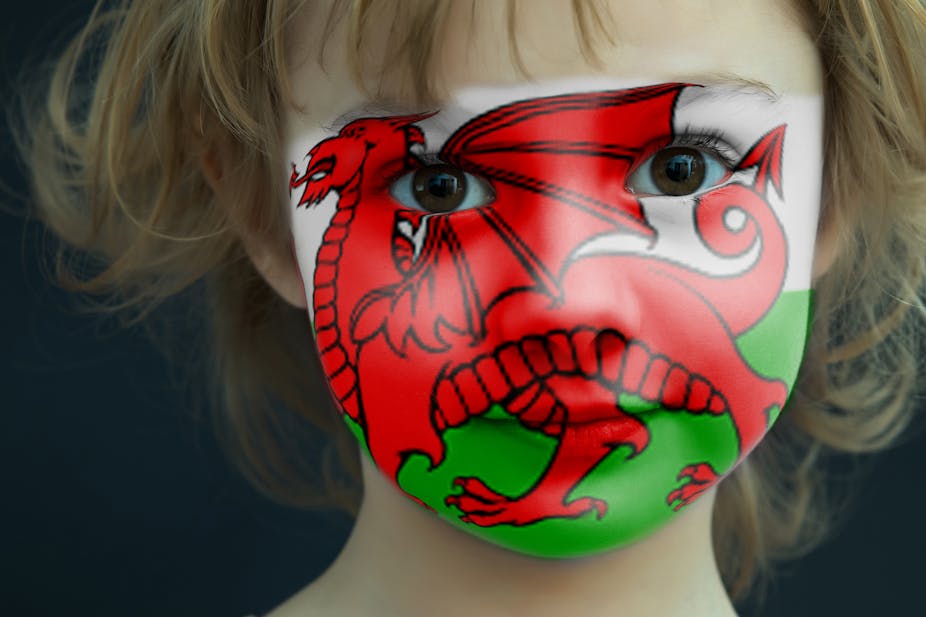National identity is difficult to define. It is connected to other concepts, such as ethnicity, nationality and nationalism, so it means something different to everyone.
In Britain, national identity has been an important topic for many years, but particularly since the Labour government introduced devolution in Wales, Scotland and Northern Ireland in 1997. These reforms not only gave new legislative powers to the devolved nations but also made citizens feel more affiliated with the separate countries. The UK has also become more ethnically diverse in recent decades. And research has found that people from ethnic minorities are more likely than white people to identify with Britain as a whole, and much less likely to identify solely with one of its four nations.
But what of the country’s children? How do those who were born post-devolution feel about their own nationalities? The relationship with one’s nation has long been established as starting in childhood. But there is very little research which examines how younger children relate to the idea of nation and national identity, and the influences which affect this relationship.

My recently published study examined children’s ideas about national identity and Welsh national identity, and what affects these notions. Many of the existing studies have mainly focused on adults’ views of what it means to be Welsh, but I wanted to investigate things from the child’s viewpoint. I also looked into both the personal perspective of national identity as well as looking collectively at ideas of Welshness.
Being Welsh
Between 2011 and 2013, I worked with 79 children aged between nine and ten years old from south east Wales. They were pupils at three different urban schools, two English medium and one Welsh medium. The study incorporated writing, drawings and interviews to capture the children’s insights.
My findings demonstrated that the children were able to define their national identities in clear and discerning ways. Welsh was the most cited national identity for this group – both in singular and multiple definitions for example, Kurdish Welsh. The children identified family, birthplace and residency as influences in determining their sense of their own national identity.
When reflecting on being Welsh and Welshness, the children’s drawings often portrayed stereotypical views of rugby and football players, with figures dressed in red shirts, as well as girls in traditional Welsh costumes. Similarly, the children frequently said that Welsh people had white skin tone, were Christian and played football or rugby. In this part of the investigation, the school, sport and the media were influential in shaping the children’s perceptions of a Welsh person.
Interestingly, while language was not highlighted as a significant feature when considering their own national identity, the children’s perceptions of a Welsh person placed an emphasis on the Welsh language. They said that people in Wales spoke Welsh and English, or Welsh or English – the latter implying that there was a choice.
This study gave insight into how children see their own national identity in a devolved nation with a lot of national pride such as Wales. It reveals their personal perspectives on their own identity and their understanding about what it means to be Welsh, a topic which has not previously been investigated in depth with children of primary school age.
The notion of Britishness in the post-devolution era is evidently quite complex. Neither adults nor children see themselves as just “British”. Nor is there just one type of Welsh – or English, Scottish, or Irish – identity that they see themselves or others as.

